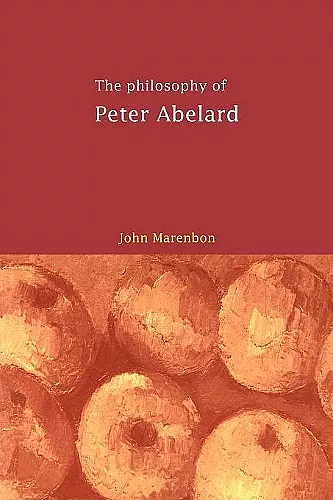The Philosophy of Peter Abelard
Format:Paperback
Publisher:Cambridge University Press
Published:23rd Sep '99
Currently unavailable, and unfortunately no date known when it will be back
This paperback is available in another edition too:
- Hardback£70.00(9780521553971)

This 1997 book offers a major reassessment of the philosophy of Peter Abelard (1079–1142).
This 1997 book offers a major reassessment of the philosophy of Peter Abelard (1079–1142), including a discussion of his life and letters, which argues that he was not, as usually presented, a predominantly critical thinker but a constructive one.This 1997 book offers a major reassessment of the philosophy of Peter Abelard (1079–1142) which argues that he was not, as usually presented, a predominantly critical thinker but a constructive one. By way of evidence the author offers analyses of frequently discussed topics in Abelard's philosophy, and examines other areas such as the nature of substances and accidents, cognition, the definition of 'good' and 'evil', virtues and merit, and practical ethics in detail. Part I discusses Abelard's life and works, and considers problems of chronology and canon (including the question of the authenticity of the correspondence with Heloise). Part II analyses Abelard's ontology, epistemology and semantics, showing how he tried to reconstruct the ideas he had learned from Aristotle, Porphyry and Boethius to fit his presumption that there is nothing which is not a particular. Part III analyses Abelard's ethical theory, showing that it is far wider and more sophisticated than has been believed.
'… most satisfying to read, combining a clear sense of purpose with an exemplary clarity of thought. It is difficult to overestimate its importance for the study of Abelard and of twelfth-century intellectual culture in general.' Early Medieval Europe
'… not only an outstanding exposition of Abelard's philosophy, but a work that opens up for specialists and non-specialists the world of twelfth-century thought.' The Times Literary Supplement
ISBN: 9780521663991
Dimensions: 229mm x 152mm x 22mm
Weight: 580g
396 pages